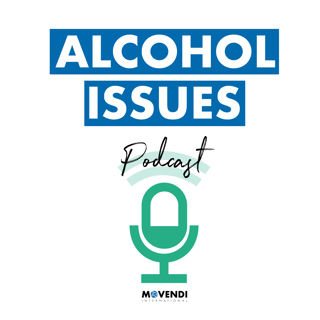
Lessons From Big Tobacco: How and Why Big Alcohol Created Social Aspects Public Relations Organizations
Om episode
Lessons From Big Tobacco: How and Why Big Alcohol Created Social Aspects Public Relations Organizations The Alcohol Issues Podcast – Season 2 Episode 07 A new groundbreaking study changes our understanding of the alcohol industry, elucidating similarities and inter-relationships with the tobacco industry. The researchers examined the Truth Tobacco Documents Library to gain unique insights regarding alcohol industry social aspects organizations. They analyzed content directly from industry actors themselves. This way the researchers are now able to tell the story of how and why Big Alcohol began creating public relations front groups. This podcast episode with Jim McCambridge is part of Movendi International’s work to raise awareness about the unethical practices of the alcohol industry and how to advance public health oriented alcohol policy solutions. Analyzing internal industry documents In this episode host Maik Dünnbier talks with Professor Jim McCambridge. The conversation with Jim provides deep insights into the evolution of social aspects and public relations organizations that operate in the interest of alcohol companies. They discuss, for example, that based on the study’s findings alcohol companies’ front groups can no longer be called “social aspects” organizations. In this conversation Prof. Jim McCambridge shares unique insights into the origins and purposes of alcohol industry “social aspects organizations” as portrayed in internal tobacco industry documents. The guest Jim McCambridge holds the Chair in Addictive Behaviours & Public Health at the University of York. Jim is also Visiting Professor at Linkoping University in Sweden, and Conjoint Professor at the University of Newcastle in Australia. Jim now holds a Wellcome Trust Investigator Award in Humanities and Social Science to advance study of the alcohol industry, public health sciences and policy. This supports one of two five-year research programmes that Jim leads. Jim first trained in Sociology, then in Social Work, and went on to work with drug users. His PhD study, at the National Addiction Centre at the Institute of Psychiatry, was a randomised controlled trial of motivational interviewing for drug prevention among young people. Jim’s scientific work is dedicated to policy-related research that seeks to develop our understanding of the roles the alcohol industry plays in national and international policy making context. S2 E7 Topic The alcohol industry regards the harms caused by the use of their products as a public relations issue that needs to be managed as such. So, in the 1950s the began working with the tobacco industry to devise strategies to undermine policy as well as science development. Maik and Jim discuss what the long-term public relations goals of the alcohol are. And they dive into three major developmental periods in the evolution of alcohol industry social aspects organizations to discuss which threats the alcohol industry felt they need to respond to and which strategies they deployed. The conversation explores the objectives and methodology of the study entitled “The Origins and Purposes of Alcohol Industry Social Aspects Organizations: Insights From the Tobacco Industry Documents”. Maik and Jim talk about two major questions: What is the strategic purpose of SAPROs for the alcohol industry? Why do they spend considerable amounts on SAPROs? And which major developmental periods in the evolution of alcohol industry social aspects organizations can be identified and what do we learn from them? In the study, Jim and colleagues show that the alcohol industry identified the developing population-level understanding of alcohol problems in the 1980 as existential threat. That is a remarkable finding and so Maik discusses this issue in depth with Jim. There is another remarkable thought in the study: "It is challenging to contemplate just how profoundly the alcohol industry may have biased what we think we know about alcohol.” Jim McCambridge, Jack Garry, and Robin Room, The Origins and Purposes of Alcohol Industry Social Aspects Organizations: Insights From the Tobacco Industry Documents, Journal of Studies on Alcohol and Drugs 2021 82:6, 740-751 Jim talks about what that means and what could be done about this. Resources for the episode Increased pressure on risk industries to reduce their negative impact on society has resulted in an increasing volume of “risk” and “responsibility” communications from interest groups known as Social Aspects Public Relations Organizations (SAPROs). Building on risk industry research from the public health sphere, this article examines the SAPRO phenomenon and situates it in the political public relations (PR) literature. Specifically, it considers how SAPROs perform an indirect lobbying function on behalf of their funding industries. The U.S. distilled spirits industry regarded the harms caused by use of their products as a public relations issue to be managed. The strategy designed by H&K was founded on the importance of managing the science in highly similar ways to the approach they developed for the tobacco companies, reproducing a playbook of key messages that have endured for decades. Origins and Purposes of Big Alcohol’s Public Relations Groups A New Development in Front Group Strategy: The Social Aspects Public Relations Organization (SAPRO) Feedback Your feedback, questions, and suggestions for future topics and guests is most welcome. Please get in touch at: maik.duennbier@movendi.ngo. You are most welcome to follow Movendi International and Maik Dünnbier on Twitter, too.